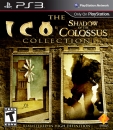rocketpig said:
Games deserve to be compared to other media because they've try to hard to BE those other media. Some games still do it through mindless gameplay interrupted by long narrative sequences to move the story forward. Virtually no story progression happens in an interactive environment. This disjointed form of gaming is HORRIBLE at telling a story because the player is constantly being jerked from one environment to another. As I said earlier, I think less "storytelling" needs to happen in games and more "experience" needs to happen. Don't worry about the pre-determined story so much as how the player gets there and how he or she changes the game environment in the process. In itself, that will help the player make a "story" their own without hurdling the difficulties of forcibly inserting narrative to get things moving again. |
Yah, I agree right now. Over time complexity might come - particularly with more power and better coding techniques - but right now what can be improved is the experience.
I've played three games (Mass Effect 2 may well be number 4 but I want to replay it a few times to get a better feel) that for me used a basically set narrative to allow for player experience and change:
Deus Ex
ICO
Sillent Hill 2
ICO has the simplest premise, and in fact you can't change much, but the interaction is superb and seamless and it's a great example of using a familiar canvas (a fairy tale essentially) married with simple, easy to master and invisible gameplay mechanics to deliver an amazing experience that is the equal of any filmed, acted or written based one.
Deus Ex has the most complex premise, a huge sprawling techno-conspiracy thriller (still unequalled IMHO) but it allows you to seamlessly make choices and affect the story without prompts. Maybe you're tasking with an assassination. There are no prompts, no moment to ponder the mechanics, you simply use the invisible mechanics you know (do I shot this person, do I lower the gun, turn and walk out, or do I turn on those who instructed me?) and once the choice is made it's made. The rest of the story changes (no in overall shape, but in the details). This welded to a fair bit of choice through fairly open levels really made you feel there and that you were in command. You could walk in the front door, check round the back, try hacking a terminal to see if it opens a secret passage, and all without breaking the immersion.
Sillent Hill 2. This is my favourite example of invisible choices. Throughout the game, without even being aware of it, you are carefully put in the position of making choices, and they matter in the end because they add up, they have impact, and finally they determine how the story ends, what happens to you, all within a fixed overarching narrative. A fake example might be rescuing someone from a locked room, how long you take, how you do it, and how you treat them afterwards all affects the story without a single prompt or you even being aware of it.
Try to be reasonable... its easier than you think...




















